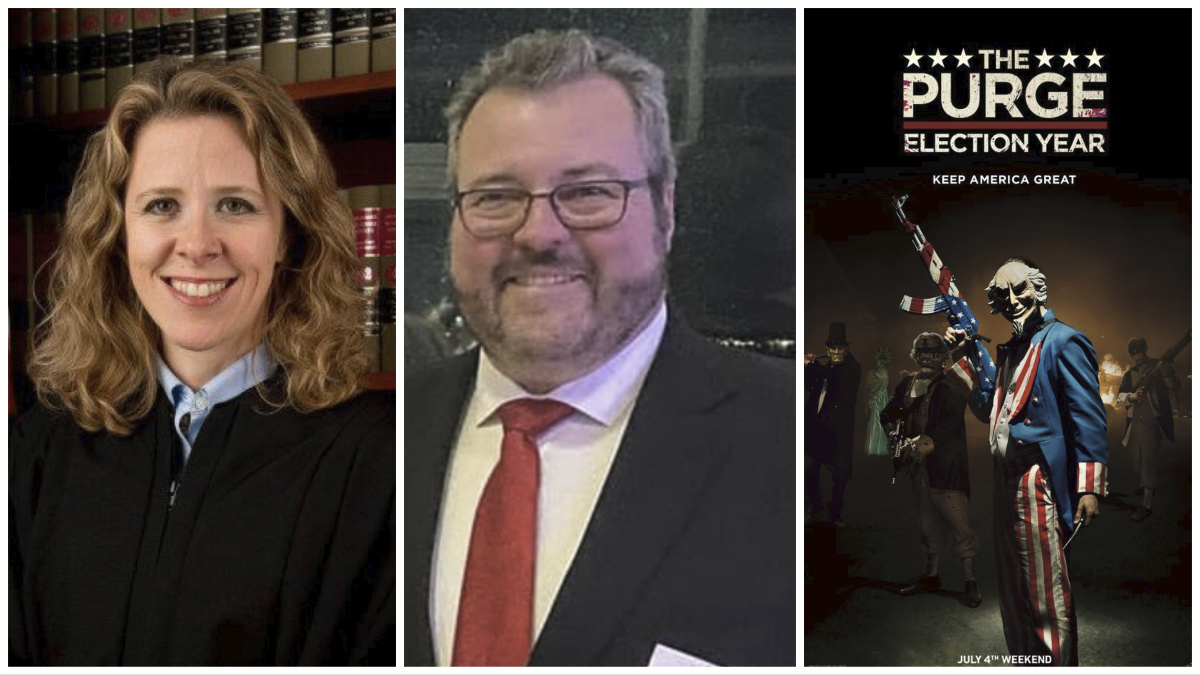Part 3 in a multipart series exploring gender dysphoria treatments for minors at Wisconsin hospitals.
Marshfield Clinic has treated minors with puberty blockers and hormone therapies in recent years because of gender dysphoria, some as young as 14 years old, Wisconsin Right Now has documented through a former employee and a blog post from the hospital.
A former employee of Marshfield Clinic reached out to us with concerns about what was happening, seemingly under the radar of many at the clinic. We were able to independently confirm the person’s identity and position with Marshfield Clinic and that the person was in a position to know the information. This person did not want to be named for fear of retribution.
According to our source, Marshfield Clinic treated approximately 135 people from 2018 to 2021 and at least 65 in 2022 with hormone treatments and puberty blockers. Some of those patients were minors, however, the exact number of minors treated is not clear.
Our source told us that at least some, if not all of the Marshfield Clinic board of directors were not made aware by management that Marshfield Clinic was performing transgender treatments of minors and that it was intentionally being kept from board members until after a merger with Essentia Health was complete.
According to our source, at age 14, Marshfield Clinic begins puberty blockers on minors. At age 16, the boys receive estrogen and the girls receive testosterone treatments, which is known as hormone therapy.
Due to the risk that the minors may become sterile, Marshfield Clinic harvests the sperm of the boys and the eggs of the girls, according to the source. It is unclear if Marshfield Clinic advises the minors that they may become sterile due to the treatments.
We reached out for comment from Marshfield Clinic on this story and for statistics on the hospital’s transgender therapies for minors, along with some Marshfield Clinic board members. They all failed to respond.
These findings are in addition to more than 260 juveniles who received puberty blockers or hormone therapy in recent years from two major Wisconsin hospitals, UW Health and Children’s Hospital of Wisconsin. We were able to document that 15 juveniles underwent breast surgeries every year – in most cases mastectomies – because of “gender dysphoria.”
Still, the data makes it clear: Minors under age 18 are receiving surgical and medical intervention for gender dysphoria in Wisconsin, even as a growing body of research is raising concern about such treatments, especially hormone therapies, spurring European countries like Finland to impose new guidelines.
To be clear, we have been unable to document that Marshfield Clinic is in fact performing transgender surgeries on minors. Marshfield Clinic’s website indicates they perform gender surgeries on patients 18 years and older.
According to a January, 2022 blogpost on Marshfield Clinic’s website,
“Starting gender affirming hormone therapy in adolescents with gender dysphoria is individualized, however, guidelines recommend starting at 16 years of age. Hormone therapy is considered partially irreversible, thus the adolescent should be able to understand the benefits and risks and give assent to hormone therapy. Gender affirming surgeries are offered at 18 years and older. Most plastic surgeons will require a year on hormone therapy prior to proceeding to surgeries,” Velasco said.
At Marshfield Clinic Health System, the transgender health clinic provides comprehensive care and support for transgender and gender diverse children and adolescents by offering health evaluation, wellness and routine care, hormone therapy, mental health support, gender affirming surgery and community resources and support groups.”
Puberty blockers suppress puberty by stopping the production of estrogen or testosterone. They can stop transgender kids from experiencing the effects of puberty that may not align with their gender identities. Hormone treatments often involve taking estrogen or testosterone.
Essentia Health and Marshfield Clinic Merger
In October of last year, Essentia Health and Marshfield Clinic Health System announced they were moving forward with plans to merge, signing a Memorandum of Understanding to evaluate how the two organizations might merge.
Essentia Health is a Catholic-sponsored health provider as indicated on their website; as such, they say they will not perform elective reproductive procedures.
WRN reached out to Essentia Health for comment and an interview for this article. They did not respond.
Unsettled Science
However, Wisconsin Right Now has documented, the science is not settled on the effects of hormonal treatments on minors who are dealing with gender dysphoria, both physically and whether the treatments actually improve mental health. In fact, there is growing international concern about the effects of hormone therapies and puberty blocks on minors. Side effects can be serious, not limited to possible infertility or bone density loss.
In 2021, a group of researchers published a study on Lancet called, “Puberty blockers for gender dysphoria: the science is far from settled.”
The article traces the argument that transgender treatment prevents suicide to a 2011 study but says that the population studied “markedly differs from the population today, which is characterized by post-pubescent young people reporting a trans identity for the first time, often in the context of significant mental health problems.” The original study lacked a control group making it unclear how much any improvements were due to the treatments.
Furthermore, the study reported that improvements in mental health, like depression, were small and “have to be carefully weighed against the risks of puberty blockers to bone health and fertility, and the uncertainty of the long-term health effects of interrupting puberty,” that article says.
“There is growing acknowledgment worldwide that the practice of providing gender-affirming care for youth is far from settled science,” the authors wrote.
A “systematic review by UK’s National Institute for Health and Care Excellence found that in youth with gender dysphoria, there was ‘little change with GnRH analogues from baseline to follow-up’ in gender dysphoria, mental health, body image, and psychosocial impact,” the authors wrote. “The study concluded that the reported psychological improvements are ‘either of questionable clinical value, or the studies themselves are not reliable and changes could be due to confounding, bias or chance.’”
What are Puberty Blockers?
According to MayoClinic.org, the class of medications are called gonadotropin-releasing hormone agonists, or GnRH agonists. The Food and Drug Administration approved them to treat precocious puberty, which means puberty occurs unusually early. They suppress the body’s release of sex hormones, including testosterone and estrogen, during puberty.
In biological males, GnRH agonists decrease the growth of facial and body hair, prevent voice deepening, and limit the growth of genitalia.
In biological females, treatment limits or stops breast development and stops menstruation.
According to the Mayo Clinic, use of GnRH analogues may have long-term effects on:
- Growth spurts
- Bone growth and density
- Future fertility — depending on when pubertal blockers are started
It was noted that biological male children who use GnRH agonists early in puberty may not develop enough penile and scrotal skin for certain gender surgeries on the genitals, such as penile inversion vaginoplasty.
There are Facebook Groups dedicated to victims of Lupron.
Table of Contents






















